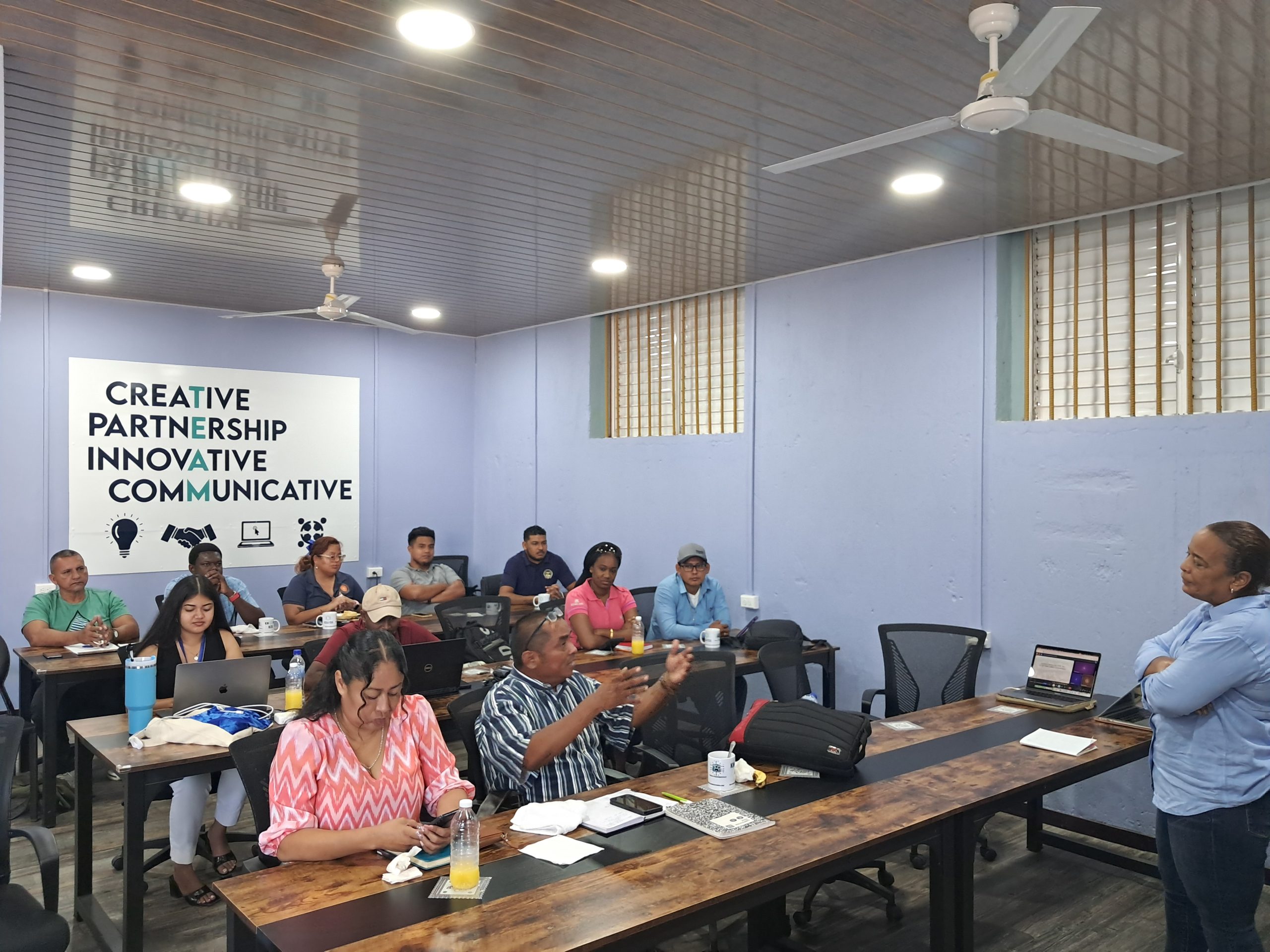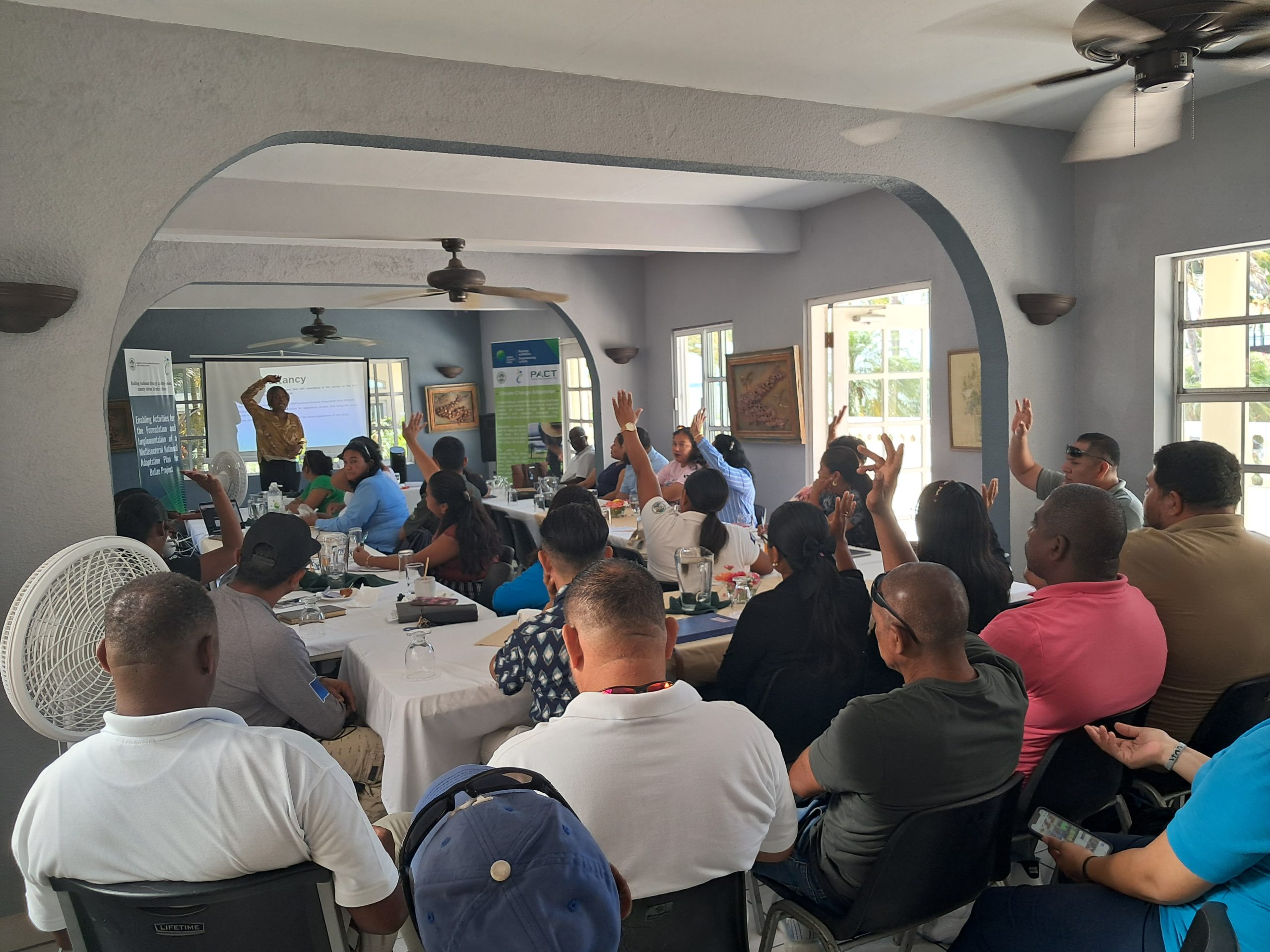Our New Normal
The impacts of the global pandemic have monumentally transformed lives and livelihoods worldwide. To say the influence of the pandemic is omnipresent is an understatement as the effects have proven far-reaching within and across borders, industries and environments. The true extent of this pandemic is still widely unknown but some tangible socioeconomic changes have been seen and felt at the global and local levels. When viewed within the context of sustainable, socioeconomic development, the influence of COVID-19 on stakeholder engagement and the resulting ‘new norm’ are brought into greater focus. As such, we discuss the effect that the pandemic is having on development inclusion and participation and the evolving nature of stakeholder consultations as a mainstay of socioeconomic development.
Stakeholder Engagement in Belize: Need vs Necessity
Prior to the pandemic, stakeholder engagement was seen as a continuous ‘need’ within the development context but, with the advent of COVID-19, stakeholder engagement has effectively become a necessity. As a ‘need’, stakeholder engagement was a process that was often lacking but needed. Today, the new Covid-19 era has proven that stakeholder engagement is an unavoidable mechanism to begin to address the socio-economic hardships and vulnerabilities that many households and communities face. There are three underlying principles that explain this importance:
Participation: People must have a voice in their development and as such stakeholder engagement is not a mere requirement for social science research. In fact, stakeholders are you and me, individuals, groups, or organizations who are directly impacted, influenced, or may be potentially affected by decisions, activities, outcomes, and swiftly changing circumstances of the pandemic. Local and indigenous men and women, people of afro-descendants, people in disaster-prone or disadvantaged communities, youths, migrants and other populations in Belize are also an integral part of conducting stakeholder engagements in Belize.
Inclusion: Development in Belize or anywhere should not happen to people; it happens with people. All voices are essential and must be accounted for, especially now in the context of Covid-19. Stakeholder engagement allows people to articulate their diverse experiences and realities and promotes greater participation and inclusion in development projects and programs.
Democracy: Empowering stakeholders to have a say in the decision-making process is a fundamental structure of our democracy. Engaging diverse stakeholders helps us to collectively determine our priorities and solutions, enabling us to shape our outcomes for development priorities in Belize.
In effect, the ‘new normal’ brings into sharp focus that stakeholder engagement is not only a pragmatic tool but an indispensable and compulsory process to expose the gaps, and understand the extent of the pandemic’s impact on stakeholders, their households and communities.
New Reality-New Problems
With this new reality, we are confronted with a new problem: which approaches for stakeholder engagement can be more effective? In the pre-covid era for instance, non-electronic communications channels, analog or traditional means of communication were a staple for development planning.
Pre-Covid Communication Channels | Examples | Advantages and Disadvantages |
❶Non-Electronic Communications Channels |
|
|
❷Traditional means of communication |
|
|
These traditional communication channels came to a screeching halt with the pandemic since there were limitations on social gatherings. Organizations and businesses soon shifted to using virtual platforms and digital marketing (social media platforms, webinars, SMS and instant messaging, online community forums, encrypted messages apps and more) to reach a wider cross-section of the population. But many vulnerable and disadvantaged groups were left without access to digital technology and information that would otherwise allow them to participate in development projects and decision-making at the community level. As stakeholders, they were consequently left without any space to voice their realities. How do we maintain meaningful engagement with stakeholders in this time of Covid-19?
Alternative Approaches
The May 2020 article by the World Bank’s International Finance Corporation (IFC), Interim Advice For IFC Clients on Safe Stakeholder Engagement in the Context of Covid-19 , explores some key ways such as:
❶Establishing a framework to guide the expansion of a robust interim stakeholder engagement process and; |
|
❷Alternative approaches to engagement. |
|
A logical rational approach
The Centre for Applied Development Studies (CADS) shares the perspective advocated in the article, Interim Advice for IFC Clients on Safe Stakeholder Engagement in the Context of Covid-19. The article emphasizes that “developing a safe and effective COVID-19 stakeholder engagement and grievance management is an important part of maintaining a proactive communication process and providing communities with information in a timely manner.” (1) In keeping with this logical-rational approach at the CADS, we champion that local and national organizations need to develop and apply a practical and comprehensive approach to the stakeholder engagement process.
Firstly, we believe that the process of stakeholder engagement must reflect the wider social context in which people interact, by accounting for key considerations to secure stakeholders’ inclusion, participation and democracy. Secondly, we support detailed consideration of some core elements such as (1) language, (2) access to information and (3) logistics, and (4) facilitation. Thirdly, we view that it is important to consider convening activities that are strategic and time-sensitive. This way, the time impact on the livelihoods and businesses of stakeholders is minimal. Finally, where these activities are likely to constrain the participation of certain community groups, especially women, other means of engagement must be investigated to ensure that they have an equal opportunity to contribute to management & decision-making processes, knowledge production and sustainable development practices in Belize.
Stakeholder Engagement is Valuable
Because COVID-19 is a pandemic of unprecedented scale and intensity, a renewed commitment to stakeholder engagement will allow people to communicate their experiences. Furthermore, it will allow development practitioners to have new lenses through which to view and subsequently propose solutions to address some development challenges brought on and made worse by COVID-19.
References
1. World Bank Group. Interim Advice for IFC Clients on Safe Stakeholder Engagement in the Context of COVID-19 (English). World Bank Group. [Online] May 2020. [Cited: April 4, 2022.] http://documents.worldbank.org/curated/en/630661596696462809/Interim-Advice-for-IFC-Clients-on-Safe-Stakeholder-Engage.
The article was written and edited by multiple writers from diverse backgrounds in Stakeholder Engagement in Belize. Their collective experiences contributed to the development of this piece and reflect their sentiments of the value of Stakeholder Engagement. Together, they have formulated this article to stir discussions about stakeholder engagement in Belize and the need for a responsive and practical framework to maintain the participation of all communities amid this new Covid-19 era.
Disclaimer: This article should be viewed as a discussion on issues affecting Belize and Belizeans. Therefore, any views shared or expressed in this article are based on the experiences and the opinions of the writers. Neither the Centre for Applied Development Studies or its affiliated writers shall in any way be liable directly or indirectly for any errors or omissions in this article.



